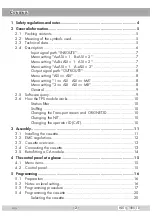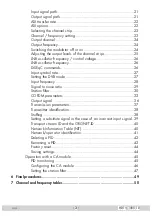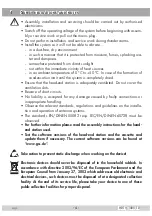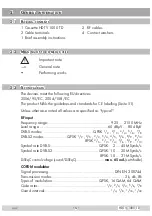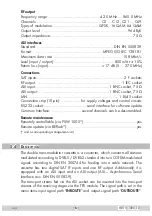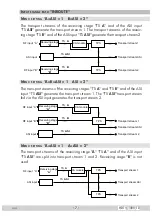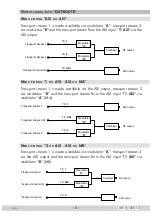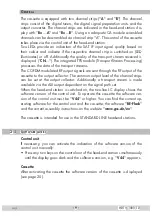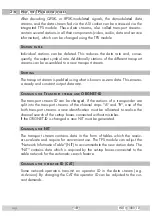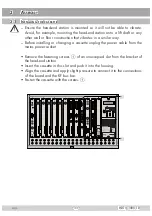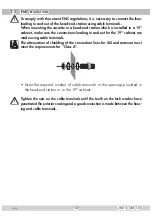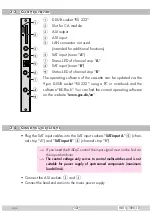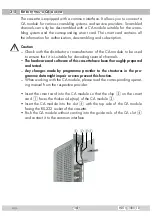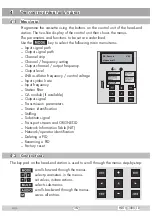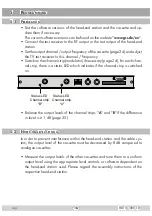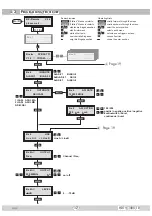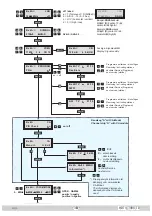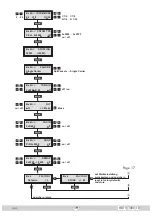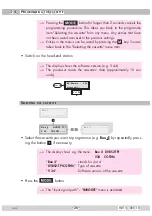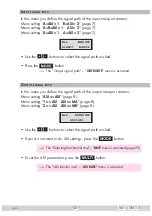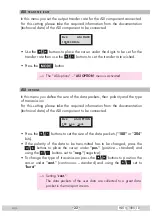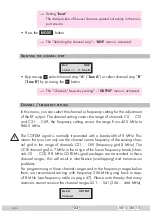
- 10 -
HDTV 1000 TD
2.6 h
ow
the
tPs
module
works
After decoding QPSK- or 8PSK-modulated signals, the demodulated data
streams and the data stream fed via the ASI socket can be accessed via the
integrated TPS module. These data streams, also called transport streams,
contain several stations in all their components (video, audio, data and service
information), which can be changed using the TPS module.
s
tation
filter
Individual stations can be deleted. This reduces the data rate and, conse-
quently, the output symbol rate. Additionally stations of the different transport
streams can be assembled to a new transport stream.
s
tuffing
The transport stream is padded using what is known as zero data. This ensures
a steady and constant output data rate.
C
hanging
the
t
r ansPort
strea m
and
orgnet-id
The transport stream ID can be changed. If the stations of a transponder are
split into the transport streams of the channel strips "A" and "B", one of the
both transport streams a new identification must be allocated to realise the
channel search of the settop boxes connected without mistakes.
If the ORGNET-ID is changed a new NIT must be generated.
C
hanging
the
nit
The transport stream contains data in the form of tables which the receiv-
ers evaluate and require for convenient use. The TPS module can adjust the
"Network Information Table" (NIT) to accommodate the new station data. The
"NIT" contains data which is required by the set-top boxes connected to the
cable network for the automatic search feature.
C
hanging
the
oPer ator
id (Cat)
Some network operators transmit an operator ID in the data stream (e.g.
visAvision). By changing the CAT the operator ID can be adjusted to the cur-
rent demands.
Содержание HDTV 1000 TD
Страница 51: ... 51 HDTV 1000 TD Declaration of CE conformity ...


